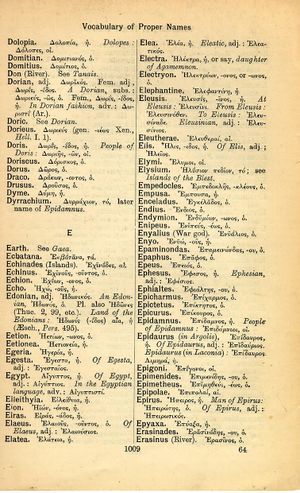Egeria
From LSJ
μὴ εἴπῃς ὠς οὐκ ἔστι Ζεύς → don't say that there is no Zeus
English > Greek (Woodhouse)
Ἠγερία, ἡ.
Latin > English (Lewis & Short)
Ēgĕrĭa: (Aeg-), ae, f., = Ἠγερία,
I a nymph or Camoena celebrated in Roman mythology, the wife and instructress of Numa, with two sacred groves and fountains, the one near Rome, opposite the Porta Capena, the other in the neighborhood of Aricia, Liv. 1, 19; 21; Val. Max. 1, 2, 1; Ov. F. 3, 154; 261 sq.; 4, 669; id. M. 15, 482 sq.; Verg. A. 7, 763; 775; Juv. 3, 12 sq.
Latin > French (Gaffiot 2016)
Ēgĕrĭa,¹³ æ, f., Égérie nymphe que Numa feignait de consulter] : Liv. 1, 19, 5 ; Virg. En. 7, 763.

